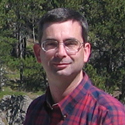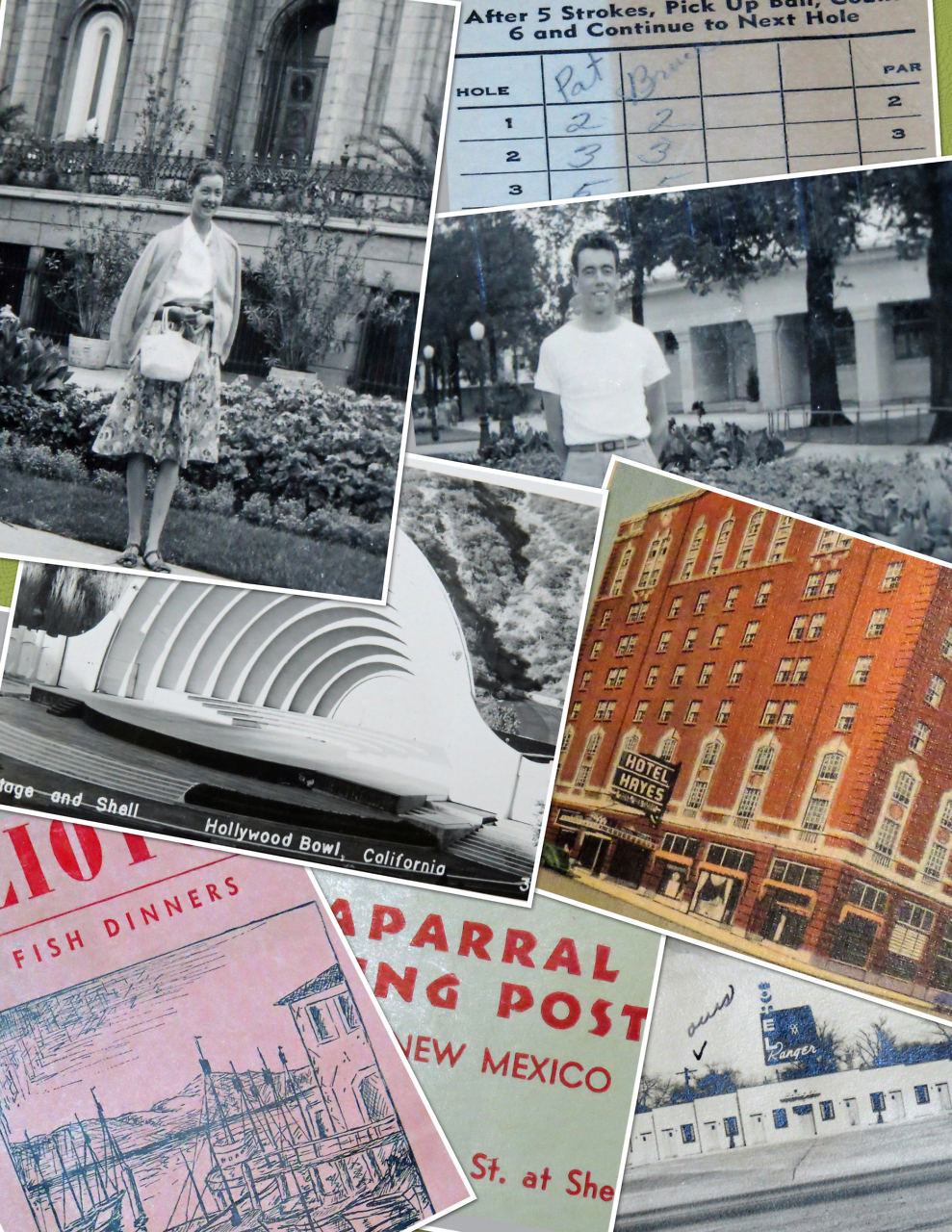July 16, 1944
The day my brother, sister, and I lucked out
My father was a curious man. No, not an object of curiosity, though there were times he could make you wonder. He was curious, as in eager to learn about many things. How does that machine work? Why is the universe the way it is? It is a good trait for a scientist, which my father was. And it is a good thing if you want to stay interested in life, which he did right up to the end.

But it can also cause problems. It is reputedly a major factor in feline mortality, and Dad could be a curious cat. Sometimes scarily so. It always bothered me that he wouldn’t take shelter during tornado warnings. He wanted to see it and would stand where he could look out a window. I remember him heading for the basement only once, at my mother’s firm insistence, the night a tornado actually passed over our home. Maybe he figured he wouldn’t be able to see it in the dark anyway, so he may as well join the family below ground.
Which brings us to World War II. Dad went to sign up in early 1942. He tried the Navy first — maybe “Join the Navy, see the world” was a slogan that appealed to him — but they rejected him because he admitted he had hay fever. So he went to the Army and, having learned from the Navy how to answer the allergy question, was accepted into the Army Air Forces, entering the cadet training program. In October of 1942 he was commissioned a second lieutenant and assigned to the Air Transport Command. Dad was not a fly boy but worked as an aircraft loading and maintenance officer. By the spring of 1943 he was on a ship headed overseas. Africa, in particular Dakar, French West Africa, would be his home for a year-and-a-half. There he worked hard, dated as many women as he could, went on a hunting safari into the bush, and once grabbed a spare seat on a supply flight to Cairo, Egypt to see the pyramids.
From the moment he arrived at cadet training to the day three years later when he headed back to the states, Dad wrote letters home. Lots of them, and to multiple people. I know because I have the ones he wrote his mother. She kept them, and he reclaimed them after the war. The letters, along with a portfolio full of his orders and travel papers, a Moroccan-leather photo album filled with black-and-white pictures, and several home movies taken during his extensive military travels, formed a treasured record of what I am sure he regarded as the greatest adventure of his life. It was the kind of experience any intellectually active person would cherish. It also almost got him killed.
Dad was never anywhere near the fighting. In one of his early letters from Africa he reassures his mother that he is over 1,000 miles from the fighting front. But war has a way of finding people who think they are safe, whether innocent civilians or rear-echelon maintenance officers. There was the convoy trip across a U-boat-infested Atlantic, where every man had to stand watch for submarines and the telltale tracks of torpedoes. Then there was the malaria that resulted from his nighttime work on aircraft during the African rainy season. He was very matter-of-fact about it in his letters home, reporting like a scientist about the days-long high fever and the drug-induced nightmares, but it was clear that he was lucky to receive the best medical care available.
The letters, which I read in their entirety only several years after he died, gave me some wonderful insights into Dad’s experiences and his curiosity. He commented on much, from African culture to the nature of French colonial architecture and the properties of the dust and mud to which he and his colleagues were subjected. He described the safari in detail, including a list of supplies they took and descriptions of how they killed warthogs and gazelles and cooked them under the direction of their Arab guide. Dad compared swimming in the Atlantic with swimming in the Mediterranean. He related his joy at hearing a program of Wagner music broadcast from a German radio station. He was learning a lot and enjoying it.
In the summer of 1944, Dad was ordered to attend aircraft maintenance schools in England to learn about a new electronic autopilot. By then he was a captain or, as he wrote home, “only four steps from general,” and was rating some decent perks. He was in England when the Normandy invasion occurred. Again, he was nowhere near the fighting. He went to class, saw the sights, dated local girls, and generally enjoyed the relative abundance and lush greens of Great Britain. By mid-July he was ready to return to Africa and took the train to London where, upon arriving at Paddington Station, he watched as a V-1 rocket passed overhead “but went on by and exploded in the distance. It aroused my curiosity.”

The V-1 was one of Hitler’s “vengeance weapons,” promoted in Germany as key to victory. Although the weapons killed a few thousand civilians in war-weary Great Britain, they failed to alter the outcome. The world’s first cruise missile, the V-1 was called a “buzz bomb” or “doodlebug” because of the odd vibrating drone made by its pulse-jet engine. By July 1944, as many as 100 per day were flying into southeast England. Their paths were tracked by radar, planes, and ground-based observers from the moment they passed over the English coast. For those that weren’t shot down (nearly half were) the resulting air-raid warnings could be very specific. First would come a general alert, then a neighborhood warning when it became obvious where the rocket would deliver its 2,000 pounds of explosive.
On the 12th of July, fresh from his sighting of a doodlebug, my future father checked into the Reindeer Club, a Red Cross officers club between New Bond Street and Regent Street, a few blocks north of Piccadilly Circus. There he waited for a seat on a flight back to Africa.
Sunday morning, July 16th, he was sitting at a desk by the window of the club, writing a letter to his mother. Sunday was his usual letter-writing day, and he had just started when the general air raid alert was activated. At this point, I’ll let Dad pick up the story:
Two minutes after the general alert sounded a bell began to ring in the club, indicating immediate danger. I looked out through the open window at the same time, and saw a cop blowing his whistle and hustling passers-by into doorways. Here was the opportunity I had been waiting for, and I poked my head out of the window in hopes of seeing the real thing in action. I could hear the loud buzz of the thing approaching, and realized it was coming pretty close. On the advice of someone in the room I began to get away from the window, and was only two steps away when a mighty blast came. The drapes flew in, the air filled with dust, and glass tinkled in the street. Your letter, which I never finished, was blown across the room. The bomb had landed two blocks away and completely demolished a six-story building. Every window within three blocks was blown out and the streets were covered with broken glass and dust. I saw two men who were hurt and receiving first-aid, and there was no telling how many might have been under the pile of rubble. Rescue squads were on the job in next to no time at all. I have several little pieces of the bomb which I picked up two blocks away. They’ll make wonderful souvenirs of London.
He poked his head out the window. That’s how I know it was really my father who wrote that letter. He had to look out the window to see what was coming to kill him. When he told me the story in person, he omitted that detail. He merely said that he had taken cover and if he hadn’t, he’d have been cut to ribbons by the glass. Perhaps he didn’t want to encourage similar reckless behavior in his offspring. I never saw the pieces of the bomb. A slightly morbid memento, they were lost to history.
But my brother and sister and I were not lost that day in London. Dad pulled his head in at the last moment and lived another 64 years, helping Mom raise the three of us and doing many other things a curious soul might do. He, and we, were very lucky indeed.
Copyright © 2025 by Chris Scott. All rights reserved.

A Michigan native, Chris Scott is an unrepentant Yankee who arrived in Nashville more than 30 years ago and has gradually adapted to Southern ways. He is a geologist by profession and an historian by avocation.

